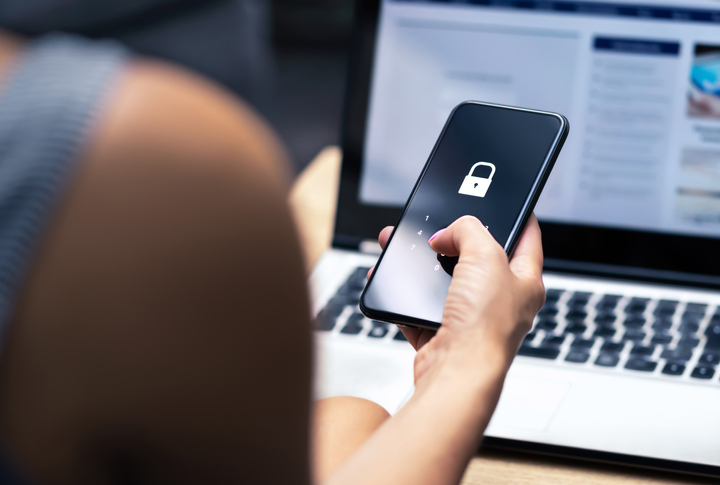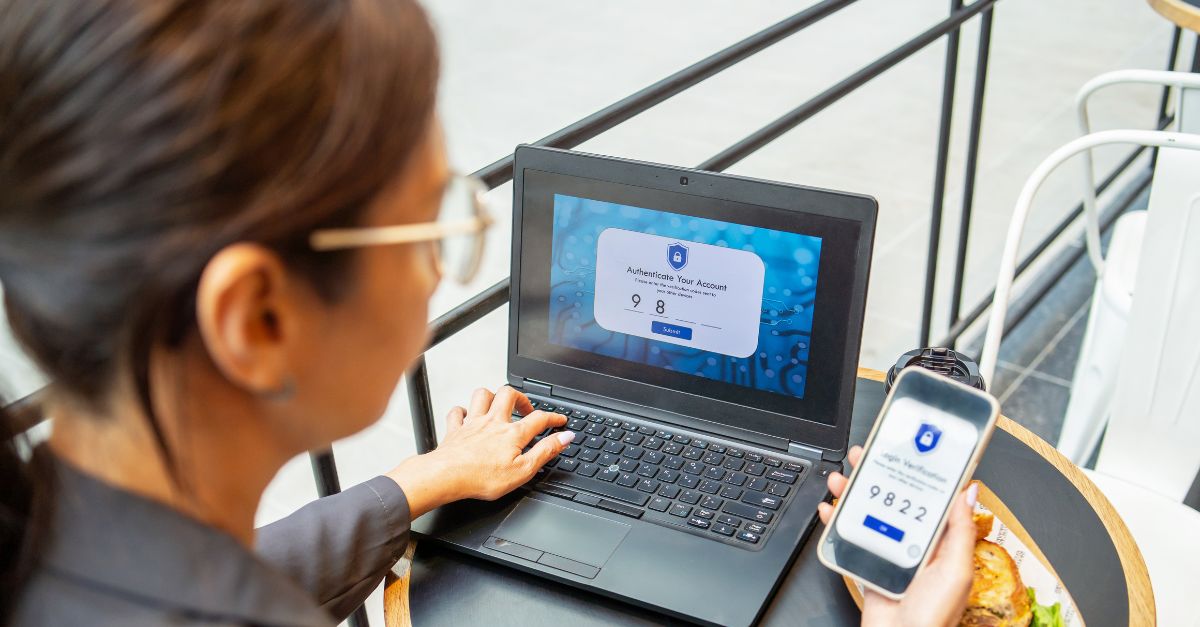MFA, or multi-factor authentication, has the power to prevent the majority of data breaches. Yet many organizations are still lagging in implementation.
MFA helps keep credentials and assets secure by validating multiple factors in addition to your username and password. This layered approach to securing accounts and logins may seem like overkill for some, but cybercriminals don’t discriminate. Anyone using a simple username/password login and even some types of two-factor authentication are at a higher risk of their credentials being exposed.
Instead of a simple username and password combination or two-factor authentication protocol that sends an SMS code to your phone for additional verification, multi-factor authentication works with a trifecta of validating factors: something you know (such as a password), something you have (such as a smartphone), and something you are (such as a fingerprint). This extra layer of authentication is essential for keeping enterprise assets and individual privacy secure, yet only about 30% of users take advantage of such protocols.
There are many reasons why users should deploy MFA in 2022 as a key security priority:
1. The rising rate of cybercrime
Ransomware and cybergangs have been getting a lot of attention in the news lately because instances of cybercrime have reached unprecedented volumes.
The FBI has reported that ransomware has been the biggest cybersecurity concern from 2018 since. This comes following an outbreak of several cases of widespread fraudulent attacks that have affected numerous companies around the globe. You may have heard of some of them: the SolarWinds attack, the Colonial Pipeline attack, and the JBS Foods attack.
Ransomware attacks cause massive destruction and financial ruin, costing companies upwards of millions of dollars in ransom. And that’s not even including the costs of lost customers and PR for recovering from such a scandal. Some major companies are able to recover from massive attacks, but without the added financial security of insurance and adequate funds, many SMBs would be completely ruined.
Fortunately, most ransomware attacks can be prevented by deploying MFA. The 2021 Verizon Data Breach Investigations Report discovered that 61% of data breaches that took place in 2020 were executed by using unauthorized credentials. When you or your organization starts using MFA, you instantly reduce the likelihood of becoming victimized by fraudsters.
2. Increasing use of online banking apps
The onset of the COVID-19 pandemic created an environment where consumers and business owners had no choice but to find alternative banking solutions to traditional brick-and-mortar institutions. In fact, over 40% of business owners today are entirely dependent on online banking services for their financial needs.
Financial technology firms listened, creating numerous banking solutions that allow customers to send, receive, and transact all from their mobile devices. According to a 2018 study, 73% of people around the world use digital banking solutions such as smart wallets, mobile payments, banking apps, and neobanks. That number is only growing today.
This technology is without a doubt a necessary convenience in today’s business environment, but it is not without its risks. Sensitive information such as bank account numbers, usernames, PINs, phone numbers, email addresses, and more can all be exploited without adequate implementation of MFA.
3. The ever-growing Internet of Things
The Internet of Things refers to all of our connected smart devices that process information at the edge or in the cloud. Mobile devices such as smartphones, tablets, laptops, smartwatches, Google Nests, Fitbits, and other smart devices are all connected to the internet and create what we call the IoT.
Anything connected to the internet is vulnerable to a data breach or cyber attack. In the age of remote work, most business computing devices are IoT devices, so the attack surface area for cybercriminals is vast. Even some children’s toys can be connected to the internet and continuously collect a steady stream of information.
Even if that child’s toy is only used by little Suzy, it was probably programmed using a parent’s email account. If that toy ever becomes compromised, then hackers can easily use brute force to get into more accounts using the email/password combo stolen from little Suzy’s doll.
The data shows that the average household in the United States has at least 10 connected device products. Using MFA can help reduce vulnerabilities caused by IoT devices by protecting the critical personal information that can be found on common connected devices.
4. More remote workers than ever before
In addition to an increase in mobile solutions, the pandemic also forced businesses to shift to hybrid and remote working models to accommodate social distancing regulations. At the peak of lockdowns in 2020, more than 70% of the workforce had shifted to remote work. Even as businesses have begun to reopen and return to the office, many organizations still allow their staff to work from home indefinitely or opt for a hybrid work model.
This is an excellent use case for MFA because, instead of working in-office with an office computer, a VPN, and IT a couple of floors away, remote workers are using personal devices to conduct business. And because many people are new to working from home, their cybersecurity protocols are not likely to be air-tight. MFA can help protect company assets and personal data while working from home.
5. Evolving compliance regulations
There has been a massive movement around the world focused on protecting user data and creating privacy rights for users of numerous apps and websites. The EU has led the way with their GDPR (General Data Protection Regulation), followed by California’s recent CCPA (California Consumer Privacy Act).
This privacy trend isn’t going away anytime soon, with the death of third-party cookies coming in 2023, and increasing pressure on governments to create data privacy regulations. Since there are no federal data privacy regulations in the United States at the time of writing, the best way that you can begin to protect your privacy is to deploy MFA.
Conclusion
Protecting your personal and business privacy is of utmost importance as digital transformation sweeps across the globe. The ever-increasing number of devices connected to the IoT combined with the fact that more people are online than ever causes a chain reaction of vulnerability that when exploited can have far-reaching impacts.
Traditional methods of authentication such as simple username/password combinations are no longer enough to ensure security in an era of heightening cyberattacks. MFA creates a set of credentials that are unique to each individual, making it difficult for hackers to steal them and wreak havoc on your organization. MFA helps prevent data loss by using layers of security to block unauthorized users out while simplifying the login process for those who are authorized. If you want to avoid financial catastrophe, then don’t wait any longer to deploy MFA.
Note: This blog article was written by a guest contributor for the purpose of offering a wider variety of content for our readers. The opinions expressed in this guest author article are solely those of the contributor and do not necessarily reflect those of GlobalSign.







